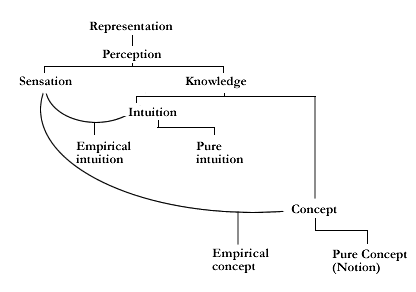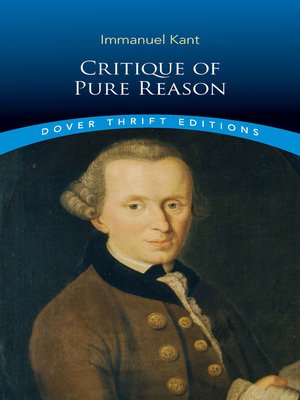
He might have known a priori that it would fall, that is, Say of a man who undermined the foundations of his house, that Itself, however, borrowed by us from experience. It a priori, meaning thereby that we do not derive it immediatelyįrom experience, but from a universal rule - a rule which is Has been customary to say, even of much knowledge that is derivedįrom empirical sources, that we have it or are capable of having Sufficient precision the full meaning of our question. The expression ' a priori' does not, however, indicate with Which has its sources a posteriori, that is, in experience. Is entitled a priori, and distinguished from the empirical, whether there is any knowledge that is thus independent ofĮxperience and even of all impressions of the senses. This, then, is a question which at least callsįor closer examination, and does not allow of any off-hand answer: Until with long practice of attention we have become skilled in That we are not in a position to distinguish it from the raw material, If our faculty of knowledge makes any such addition, it may be Impressions serving merely as the occasion) supplies from itself.

Through impressions and of what our own faculty of knowledge (sensible For it may wellīe that even our empirical knowledge is made up of what we receive Order of time, therefore, we have no knowledge antecedent to experience,Īnd with experience all our knowledge begins.īut though all our knowledge begins with experience, it does notįollow that it all arises out of experience. That knowledge of objects which is entitled experience? In the

Them, work up the raw material of the sensible impressions into To compare these representations, and, by combining or separating

Representations, partly arouse the activity of our understanding

THERE can be no doubt that all our knowledge begins with experience.įor how should our faculty of knowledge be awakened into actionĭid not objects affecting our senses partly of themselves produce Of the difference between Pure and Empirical Knowledge The four files reproduced here, cover all of Kant's introduction which succinctly explains his basic approach, plus another excerpt from early on in the work, an important section where he explains his reaction to Hume and the section on 'Antimonies of Reason' which is important when it comes to Hegel. Norman Kemp Smith version from Chinese University of Hong Kong, with text of Kant's second edition extracted. Immanuel Kant (1787) Critique of Pure Reason.


 0 kommentar(er)
0 kommentar(er)
